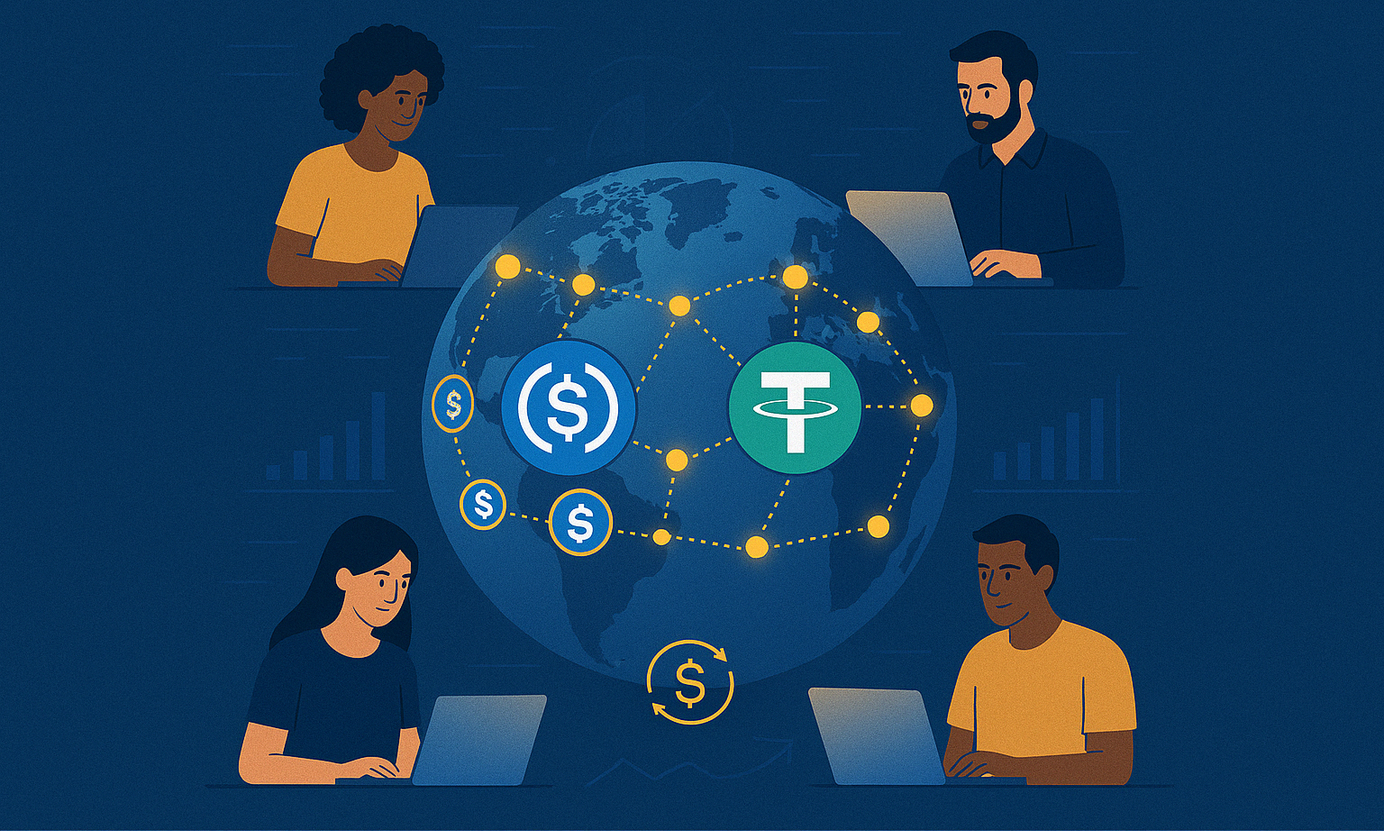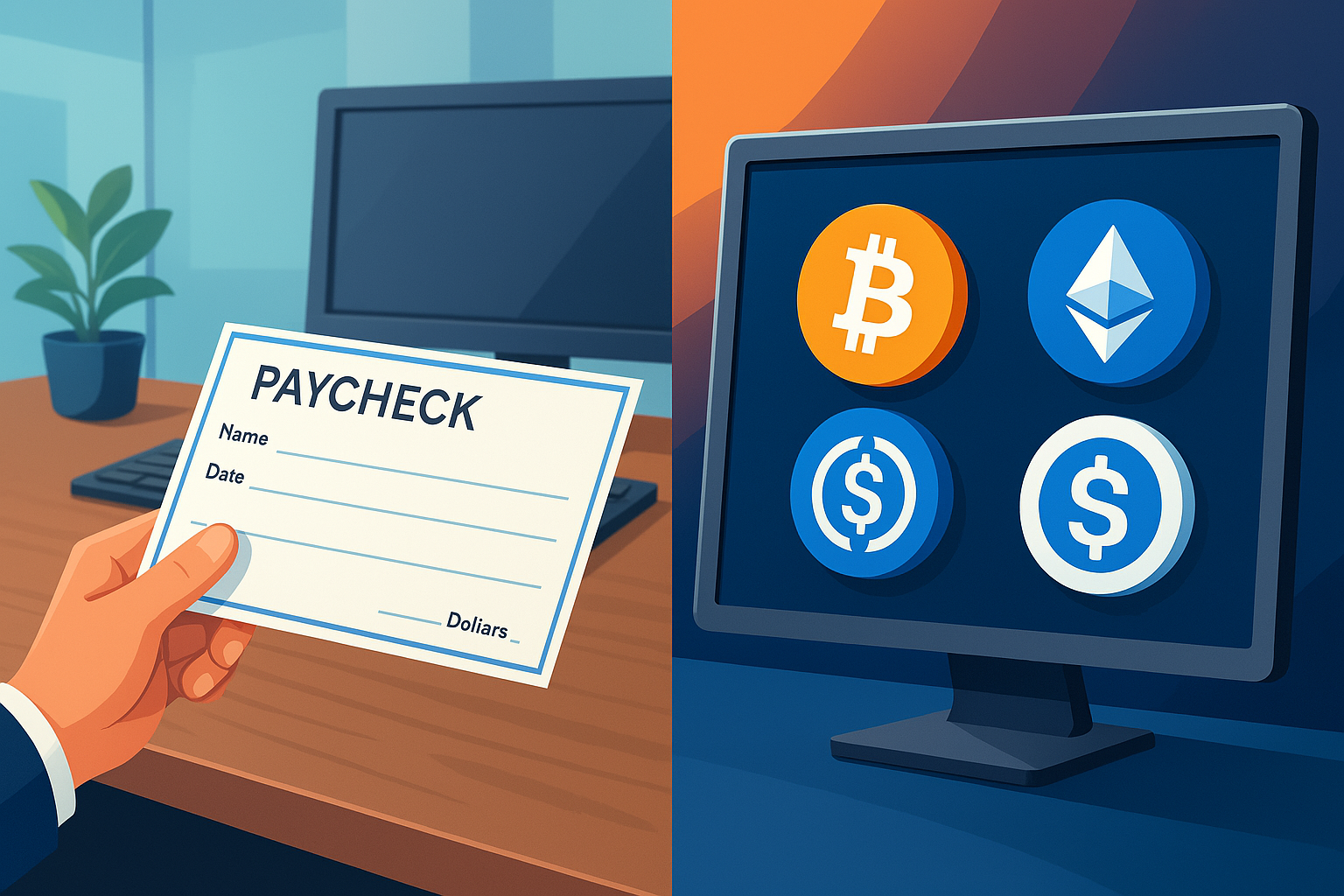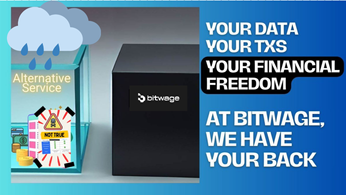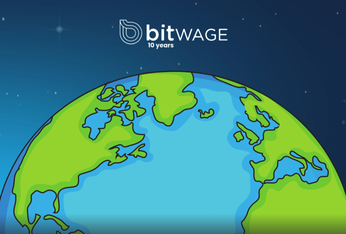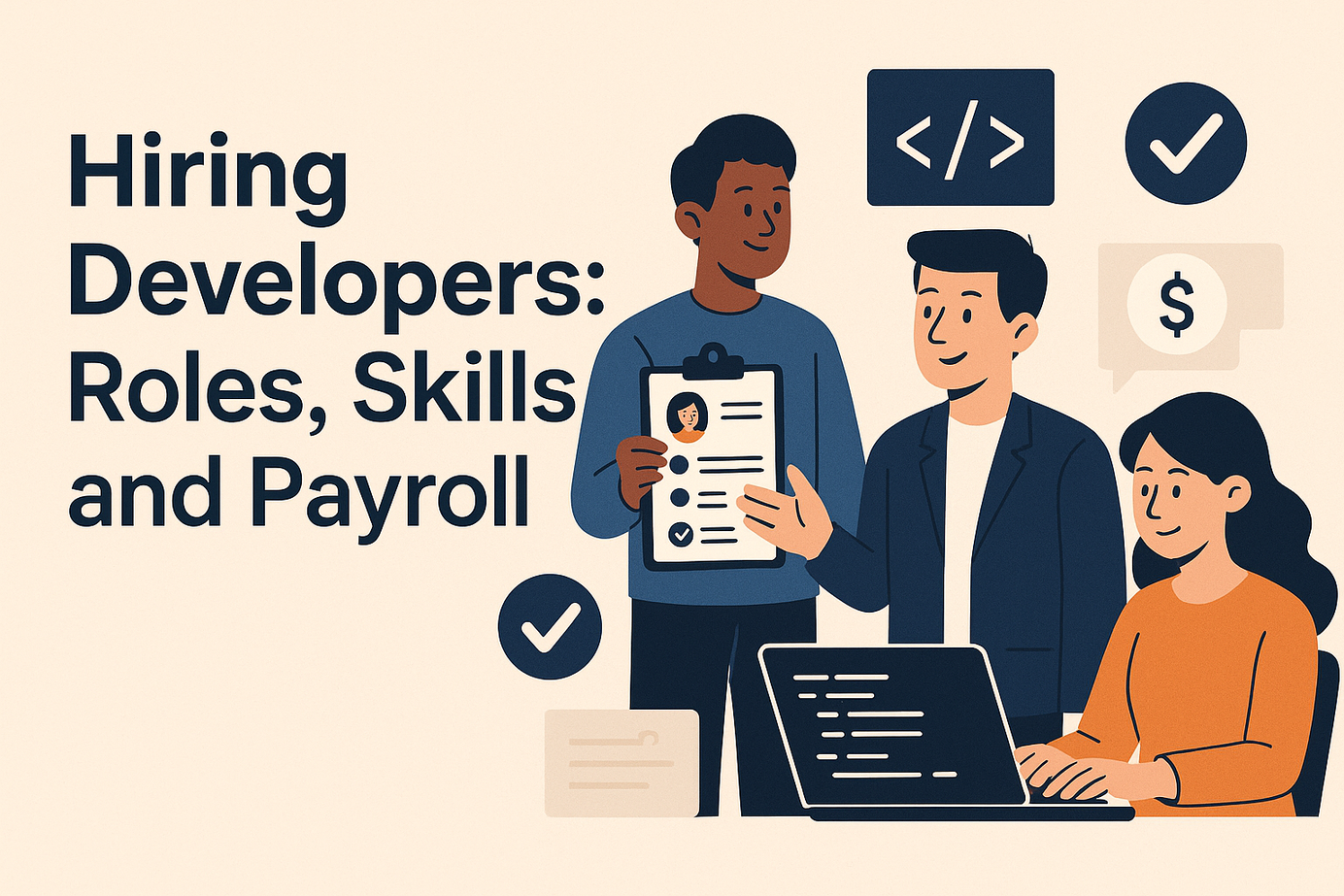
Hiring Developers: Roles, Skills, and Payroll.
Have you ever wanted something built and can't find the person to create it? Or maybe you're urgently looking for a developer, but no candidate seems to fit the criteria?
Table of Contents
In this guide, we'll explore everything you need to know about finding the best talent for your company. From determining the right developer for your needs to identifying the best places to finding developers and even managing payroll efficiently.
Let’s dive in!
📍Identifying Your Development Needs
Before you start looking for developers, the first essential step is to define what kind of development work you need. Are you building a mobile app, a web platform, or both? Will you need front-end developers to work on the user interface (UI) or back-end developers to manage your servers and databases? Are you making a game? Do you need a mobile app?

It's crucial to remember that the talent you hire will lay the foundation for your product or platform's future. Building a strong foundation now is key to preventing issues that could cause your project to "crumble" down the line.
📍Types of Developers: Front-End, Back-End, Full-Stack, and More
Like other talent fields, developers usually specialize in certain fields or niches.
To better understand these, let's break down some of the most common types of developers so you can find the one that suits your company's needs.

Front-End Developers
Front-end developers specialize in what users see and interact with on a website or app. They create the layout, design, and interactive elements that make up the user experience (UX) and user interface (UI).
You want to hire these kinds of developers if you are looking to build something that is user-oriented and requires a high-level look and feel with interactive elements.
Back-End Developers
Back-end developers usually handle the behind-the-scenes work, making sure servers, databases, and APIs run smoothly.
When your project needs to manage data, integrate with databases, and handle complex server-side logic (processing orders, storing user information, or managing accounts) back-end developers are what you are looking for. They’re crucial for apps with heavy data processing or if you need to ensure security and performance.
Full-Stack Developers
These guys are a mix of both front-end and back-end developers who can work on handling all aspects of development. Most full-stack developers are extremely versatile, have knowledge in all aspects of development and can be a great addition to any team.
You should look to hire full-stack developers if you are a startup or a small team that needs one person to manage both aspects of the project. It is best practice to hire a full-stack dev if you are working on a brand new project or product and need someone to take control of the entire development process.

Mobile Developers
As the name states, these guys make apps for smartphones and tablets.
You need this kind of developer when you are looking to create a mobile app for IOS, Android, or other phone operating systems. Whether for internal tools or apps that are for customers, mobile devs are necessary to optimize the experience for smaller screens and ensure that the apps are compatible across devices.
Game Developers
These developers design and develop video games for mobile, PC, or consoles like the Playstation or Xbox.
If you're creating a game, you MUST have a game developer. Whether it's a mobile app game or more of a large console/PC game, you need one of these. They handle everything from the game mechanics and graphics, to sound design and player interactions. If you're looking for immersive interactive experiences for your game, hire a game developer.

AI Engineers
These kinds of developers (also known as engineers) have developed intelligent systems that learn, adapt, and solve complex problems using machine learning and AI.
If your business is looking to integrate AI-driven systems, like automated chatbots, AI customer support, image or voice recognition, or complex decision-making tasks, you have to work with an AI engineer. Build smarter solutions that improve over time as AI learns more about your product or offering.
Blockchain Developers
Blockchain devs create decentralized apps (dApps) and manage blockchain technology for secure, transparent, and decentralized systems.
If your company is working with cryptocurrencies, wants to create a token, or offers a blockchain-based service or app, these are your go-to. When looking for security, transparency, and decentralization within your project or offering, blockchain developers can be a huge asset. Considering the current state of technology, trends show that blockchain developers will be crucial in the future.
Finding the right developer for your project can make all the difference in building a product that’s successful, scalable, and future-proof. Understanding these roles is the first step toward hiring the correct developer for your needs.
📍Where to Find and Hire Top Developers
Identifying the type of developer you need is essential, but finding the right person for the job is just as, if not more, important to the success of your business. Steve Jobs once said, ‘It doesn’t make sense to hire smart people and tell them what to do; we hire smart people so they can tell us what to do.’ So if you're wondering if it's hard to hire developers the answer is to hire a smart developer!
Let’s dive into where to find developers for your business and explore which platforms are ideal for different types of developers.
Toptal

Toptal is well known for having a highly selected vetting process, they usually only accept the top 3% of all developers. Toptal is great for businesses with large-scale projects that require a high level of expertise or are looking for elite developers.
Upwork

Upwork is one of the largest talent marketplaces around, offering plenty of developers with different levels of expertise. This platform is perfect for companies looking for flexible hiring, be it for large-scale projects that require elite developers or for short-term, smaller-scale projects that may not require extreme expertise. Upwork also allows you to browse portfolios, reviews, and the work history of the worker you are trying to hire, giving you more insight and helping you choose before scheduling an interview.
LinkedIn

LinkedIn is a professional networking platform and because of that it is one of the best places to find full-time or freelance developers. LinkedIn serves best to companies looking to hire permanent developers or various team members. While freelancers use LinkedIn, most individuals are looking for a permanent position. They also can create job postings and they have tools to make the recruitment process that much simpler.
Gun.io

Similar to Toptal, Gun.io is known for matching companies with high-level vetted developers. Their main focus is on quality, this platform is especially good for companies that are looking for back-end, full-stack, and front-end engineers. We suggest using Gun.io especially if you are a startup looking for an excellent full-stack developer that can bring the best of both worlds (front and backend) to your business.
📍Freelance vs. Full-Time Developers: What's Right for You?
Understanding whether you need a full-time developer or a freelancer depends on your current needs and long-term plans. It's best to, before hiring, think about what kind of hire your business is after.

Freelancers
Freelancers are ideal for short-term projects or tasks, such as building a Minimum Viable Product (MVP) or addressing specific issues. They offer a cost-effective solution, especially for early-stage startups. If your business is already established and looking to expand, freelancers can provide flexibility by allowing you to hire for specific tasks without the need for full employee contracts or handling taxes—freelancers manage their taxes. If you need to get something built without committing to a long-term hire, freelancers are your best option.
Full-Time Developers
Better for long-term projects that require ongoing updates and maintenance. Full-time developers are best for businesses already on the market, or planning to be, but want to develop an elite product that requires regular development. Full-time developers usually tend to be more in line with the company vision and can be a great asset after the developer has learned the ins and outs of the company. Do take into account that full-time developers usually come with a higher upfront cost in terms of salary, benefits, and compliance, but don't let this discourage you, since full-time developers will be highly committed to your company's needs since they are not working on other projects alongside yours.
When hiring remote or international developers, you’ll also face the additional complexity of managing payroll, compliance, and legal requirements across different countries. This is where Bitwage comes in.
📍The Challenges of International Payroll for Remote Developers
Once you've hired your developers, the next big hurdle is paying them, especially if they're located in different countries. International payroll can be complicated, with issues like:
Compliance
Each country has its payroll regulations, which include tax laws, social security contributions, labor laws, and employee benefits. Conducting payroll across multiple jurisdictions requires a deep understanding of the requirements to avoid fines, fees, or legal issues.
Currency Conversion and Exchange Rate Fluctuations
When paying employees in different countries, currency conversion can be a bottleneck. Exchange rates fluctuate constantly, which can impact the payroll amount and lead to employees not receiving the full amount they are owed.
Payment Methods and Banking Infrastructure
Not all countries have the same banking infrastructure or many accepted payment methods. In some places, bank transfers can take days or weeks to go through, while in others, payment methods like digital wallets are more prevalent.
Cost of International Transfers
Traditional international bank transfers have high transfer fees, conversion fees, and delays tied to them. These costs do add up and can be a chunk after some years especially if you make frequent payments all over the world.
Bitwage simplifies international payroll by allowing companies to pay their remote employees and freelancers using a combination of traditional and cryptocurrency options. Currency conversion fees are non-existent, payments are faster, fees are lower, and compliance is easier to manage.

📍Why Bitwage Is the Best Solution for International Payroll
Bitwage offers payroll solutions for companies that want to not only pay their workers effectively but also let them choose which currency they want to get paid in. Giving developers this flexibility is extremely attractive since most developers work remotely and often face issues with payments, either because they live in another country with different international payment rules, or because they receive less than bargained for due to all the fees with traditional payments.
Global Payroll Management
Bitwage simplifies the complexities associated with international payroll, making it extremely simple for businesses to pay employees and freelancers across the globe without having to worry about bank fees, exchange rates, or delays in payments.
Cryptocurrency Payments
Bitwage allows companies to offer their employees the option of getting paid in cryptocurrencies like Bitcoin, Ethereum, or stablecoins. This is a huge advantage if you're looking to hire a full-time or freelance developer since this feature attracts tech-savvy employees and can also help you retain them. Cryptocurrencies offer a fast and low-cost way to conduct payroll compared to traditional banking methods.
Non-Custodial Service
Bitwage is non-custodial. We allow companies to conduct payroll without the need to hold or control the money directly. Employees receive their wages directly into their bank account or crypto wallets, and employers simply send a standard transfer without the need to deposit funds into a platform that holds custody of your money.
Trust and Reputation
With over 10 years in the industry and being the pioneer in crypto payroll services, Bitwage has built a strong reputation for being reliable and for overall customer satisfaction. This is crucial for handling sensitive matters like payroll.
Ease of Use and Flexibility
Bitwage easily integrates as an add-on to your current payroll system without the need for complex setups. Bitwage offers companies the flexibility to adapt the platform to cater to individual company needs, like what we have recently seen with Consensys.

📍Conclusion: The Perfect Combination of Talent and Payroll
Finding and hiring the right developers is a crucial step for any company, be it a startup or a large corporation. Whether you’re hiring freelance developers for a short-term project or building a full-time development team, Bitwage ensures your payroll process is taken care of.
📍FAQ
Should I hire freelance or full-time developers?
- Freelancers: Best for short-term projects, MVP development, or specific tasks. Cost-effective for early-stage startups or expanding existing teams.
- Full-time Developers: More suitable for long-term projects requiring ongoing maintenance and updates. Provides greater commitment and project understanding but involves higher upfront costs (salary, benefits).
What are the challenges of international payroll?
- Compliance: Navigating varying tax laws, labor laws, and payroll regulations in multiple countries.
- Currency Fluctuations: Exchange rate changes affecting payroll amounts and potentially leading to underpayment.
- Payment Methods: Dealing with different banking infrastructures and payment preferences globally.
- High Transfer Costs: Traditional international transfers often involve hefty fees and potential delays.
How can Bitwage help with international developer payroll?
Bitwage streamlines global payroll for remote teams:
- Simplified International Payroll: Manages compliance, currency conversion, and payments to over 150 countries.
- Cryptocurrency Payments: Enables paying developers in crypto (Bitcoin, Ethereum, stablecoins) — attractive to tech talent.
- Non-Custodial Service: Direct payments to employee accounts or crypto wallets without Bitwage holding funds.
- Trusted and Reputable: A pioneer in crypto payroll with a long-standing reputation for reliability and customer satisfaction.
- Ease of Use and Flexibility: Acts as an add-on to existing payroll systems and offers customizable solutions for specific company needs.
Why is finding the right developer crucial for my startup?
The right developers are the backbone of your product's success. They lay the foundation for a scalable, high-quality product, impacting its future growth and user experience.
Is it hard to hire developers?
Yes, it can be challenging to find the right developers, especially for specialized roles. The key to overcoming this difficulty is to clearly define your development needs before starting the hiring process. Depending on whether you need a front-end, back-end, full-stack, mobile, AI, or blockchain developer, you'll have to search in different talent pools.
Several platforms, like Toptal, Upwork, LinkedIn, and Gun.io, offer access to top developers, but competition for elite talent is high. However, by focusing on platforms that specialize in vetting developers and understanding whether you need freelancers for short-term projects or full-time developers for long-term work, you can effectively narrow down your search and find the best talent.
Ultimately, the complexity of finding developers depends on your needs, but with the right strategy and platform, you can successfully navigate the challenges.





